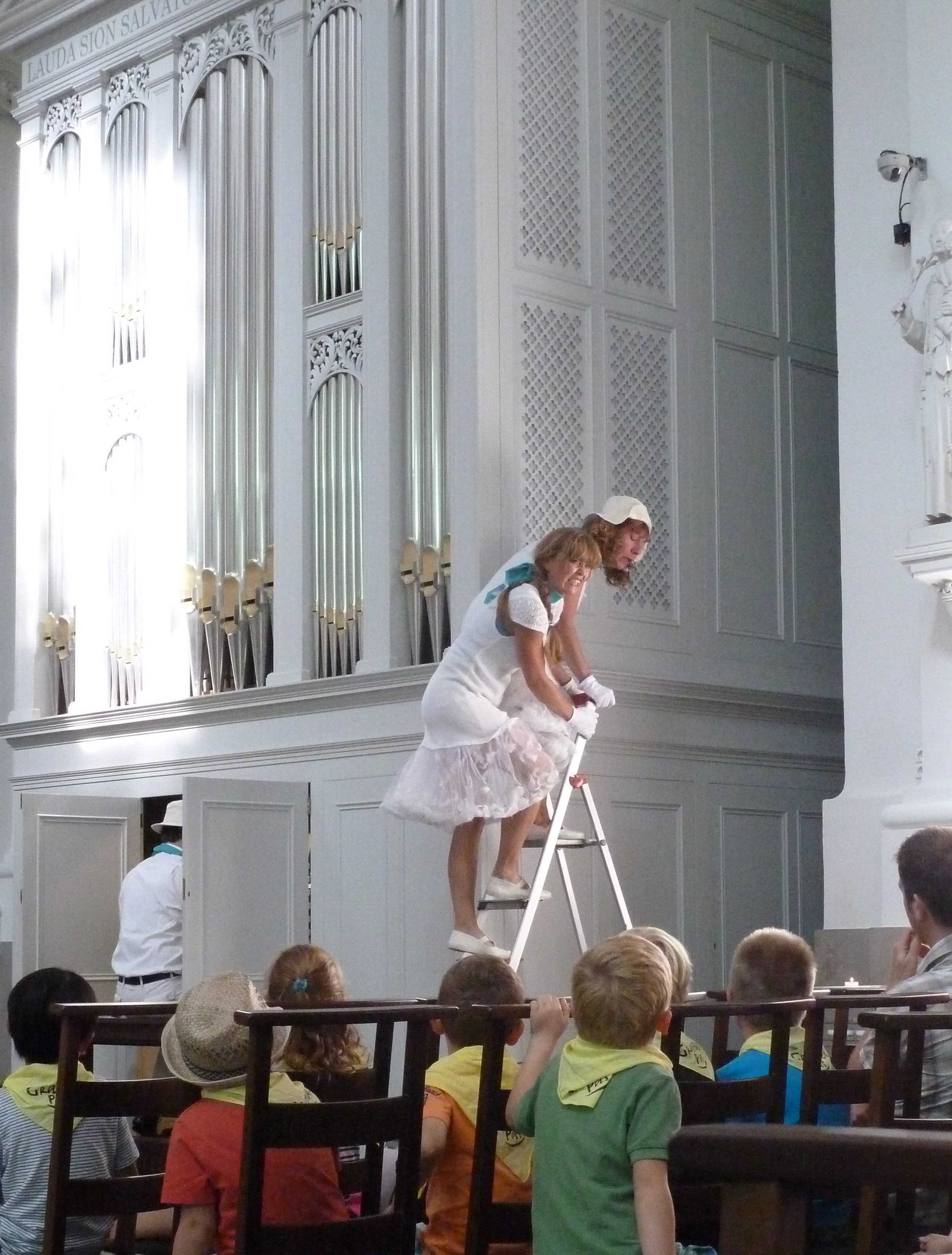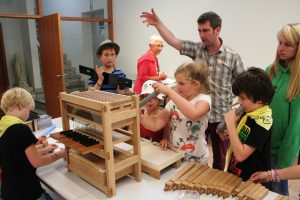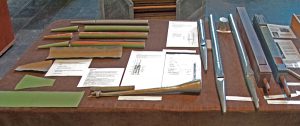How to get people involved with “the Organ”, was the idea that lead to the Het Orgel in Vlaanderen (“The Organ in Flanders”) being founded in 1990, with the main focus being how to maintain and improve the organ culture and heritage in Flanders.

Between 1990 and 2000 the most important issue was the realisation of “the Day of the Organ“, organ concerts with free entrance (at first in Bruges, later on in different cities of Flanders), the making and distributing of photographs of Flemish historical organs, and the publication of a modest newsletter for the members. After the moving to Antwerp in 2000 and an enlargement of the Board of directors with deputies of the cultural world in Flanders a lot of activities were developed:
- The “Day of the Organ” became part of the yearly “Day of the Monuments”, and was renamed “Organ on Open Monument Day“
- The website orgelinvlaanderen.be was started and since 2005 there is also the monthly organ mail newspaper
- The magazine for members changed from two-monthly to three-monthly and was named “Information magazine of Flemish Organ culture”
- Activities like Flemish Organ days (a weekend with a competition for non-professional organists, and with different concerts and workshops) and Summer Academy
- An own cd-label “Vision-Air“, with recordings that are called “Flemish Organ Treasures”
- Pedagogical seminars for organ teachers are annually realized the in collaboration with OVSG
 Today we cannot deny that the natural habitat (churches, chapels) of the organ heritage are under pressure. To preserve the enormous organ heritage in Flanders and Europe for the future we also have to look to the relationship between the organ and heritage. To realize this, Het Orgel in Vlaanderen works together with different Partners like HERITA, CRKC, Open Churches and Orgelkids.
Today we cannot deny that the natural habitat (churches, chapels) of the organ heritage are under pressure. To preserve the enormous organ heritage in Flanders and Europe for the future we also have to look to the relationship between the organ and heritage. To realize this, Het Orgel in Vlaanderen works together with different Partners like HERITA, CRKC, Open Churches and Orgelkids.
In order to raise awareness of the organ to children and youth, a project was started with Orgelkids in the Netherlands. As a result of secularisation, fewer children visit a church service at a young age, making it difficult to get in contact with organs and organ music. The Orgelkids organ is a mechanical, two rank pipe organ in a box, which includes all the parts a real organ has. It is an educational box that can be used by organ teachers, schools, local authorities and cultural organisations. The latest project included the publishing of an educational book (in Dutch) around “the organ” for children between 6 and 12 years old.
Another part of the work of the association is advising and helping local projects that help bring organ heritage to a larger public. In the context of the re-use of churches, Het Orgel in Vlaanderen supports church councils and others with the replacement of instruments and use of organs.
The issue of deserted churches and re-use of church buildings are major challenges for a dynamic and development-oriented society. Creating a new social place for pipe-organs is therefore a priority. To achieve this, it is important to integrate organs in a larger context like using them for organ education, programming organ activities in cultural centers, and overall accessible activities for the general public. Concepts where “experience” is central must be developed, because they are another important point within the dynamic and development-oriented society. Some examples and explanations:

- The keyword for the future is “cooperation”: collaboration with the Academy of music, the local Department of Culture, the cultural centers, local social associations, etc. The organ can be used for organ lessons or for practice. A cultural center can make use of an organ for concerts and activities. Local associations may organize activites around organs; for example during a heritage event, a guided tour of the organ, an exhibition about organ building, etc. Another possibility is to organize activities with extra attention for children, after all, in the future they will be in charge of taking care of heritage. Children’s performances or fairy tales with organ music, or a children’s workshop around the organ using the Orgelkids are some possibilities.
- Programs for organ concerts can also use innovative concepts: organ as accompanying instrument for dance or silent movies, organ and poetry, organ and Tai-Chi..these are not only surprising combinations but can also reach new audiences. Of course, combinations of organ and other instruments, choir or vocals are also valuable options.
- In the search for (professional or amateur) skilled organists to play the organ, there is also the thought of city organists: one or more organists that not only care about the liturgical tasks within a city or town but are also responsible for small concerts at regular intervals, demonstrations and guided tours for tourists or visitors. In some Flemish and Dutch cities, there are already some active “city organists”.
In all thse activities, “Het Orgel in Vlaanderen” works together with the Department of Heritage of the Flemish Government.
You may find more information at: www.orgelinvlaanderen.be





Follow us: